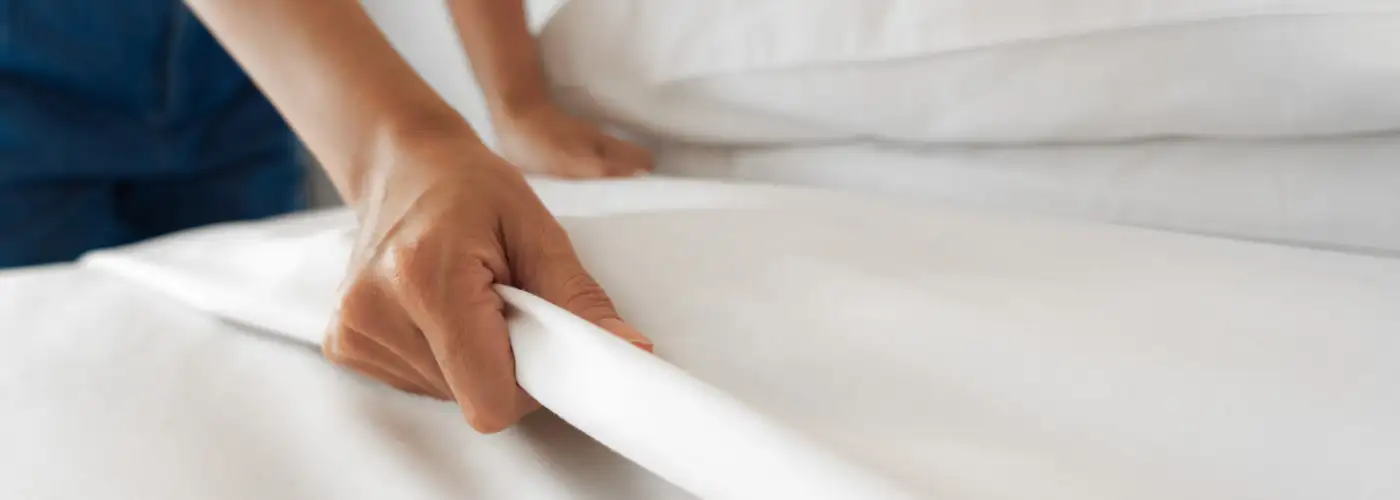“No place is a guaranteed bedbug-free zone; any place humans sit, rest or sleep gives bedbugs the opportunity to feed and multiply.” I interviewed Paul Curtis, a board-certified entomologist at Terminix, and he confirmed my worst fears about bedbugs. But he also offered some advice on how to protect yourself from this travel scourge (and warns us about the unexpected pest you can find on airplanes). Here are Curtis’s tips on how to spot bedbugs, avoid bringing them home, and what to do if you get them.
Frequently Asked Questions: Bedbugs
- Can you bring them back to your bed at home?
- What is the first thing you do when you enter a hotel room?
- What should you do if you find evidence of bedbugs in your hotel room?
- What are the most unusual places you can find bedbugs?
- How do you get rid of them once you have them?
- How long does it take to completely eradicate them?
- What is the financial impact if you bring them home with you?
- Is there anything you can buy to protect yourself from bedbugs?
- Can they make you sick? Do they carry diseases?
- How long do they live?
- How big can they grow?
- How many hotels on average have reported cases?
- Is it true that upscale hotels are just as likely as budget motels to have bedbugs?
- What’s something you don’t expect when you have bedbugs?
- What do hotels do to get rid of bedbugs?
- What other pests beyond bedbugs should people look for in their hotel?
- Are there ways to check in advance if a hotel has or has recently had a bedbug problem?
- Is there any type of lodging that has fewer incidents?
- Can you catch lice from an airplane headrest?
If you stay in a hotel room with bedbugs, can you bring them back to your bed at home?
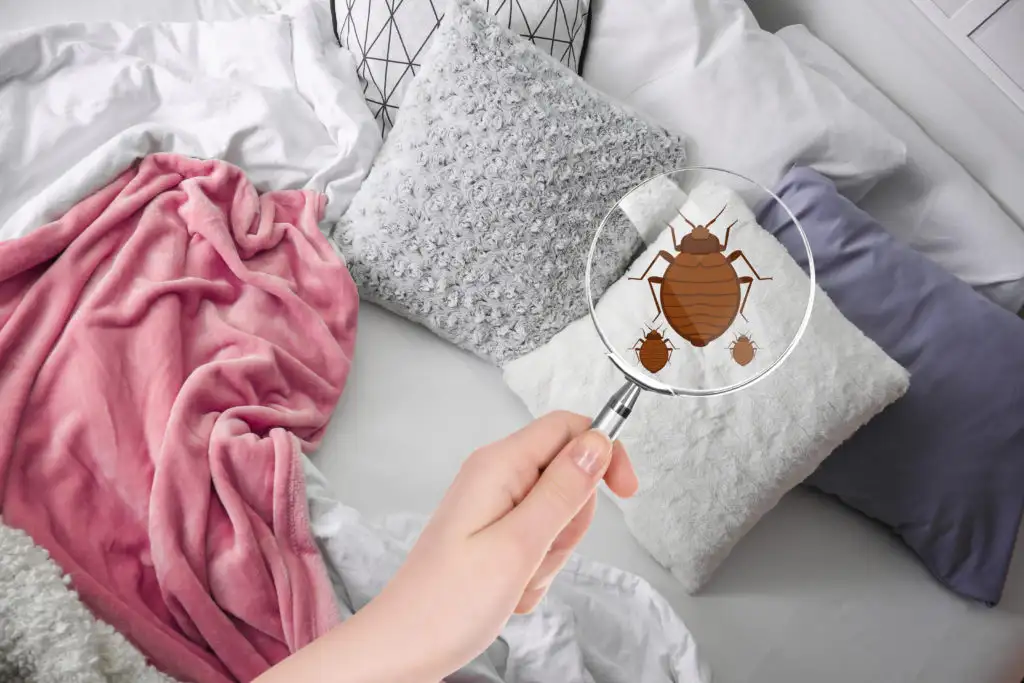
“Bedbugs are relentless hitchhikers, and their primary method of transportation is humans and their belongings. Bedbugs can latch onto our suitcases or clothing if we stay in an infested hotel room, and hide until we reach our final destination—home. The best way to prevent bedbugs from becoming your unintentional roommates is to conduct thorough checks at the hotel and all your personal items when you get home. “
What is the first thing you do when you enter a hotel room?
- The first thing you should do when you arrive in a hotel room is thoroughly inspect it for signs of bedbugs.
- Put your luggage in the bathroom to start, as this non-carpeted room is the most unlikely place for bedbugs to linger.
- Inspect your bed by pulling the comforter and sheets back and checking for any signs of bedbugs. Lift and check underneath the mattress and box spring and at the top and bottom of the bed. These critters are small but visible to the naked eye, so a careful examination will reveal adult and nymph bedbugs, along with their eggs. You may also see dark or red fecal spots and leftover molted skins.
- Carefully check all other furniture in the room. Bedbugs can crawl behind hanging picture frames, hide in corners of the nightstand and disappear inside drapes.
- Once your room has been checked, store your luggage on a hard surface or luggage rack rather than a bed, couch or fabric chair for the smallest chance of contamination.
What should you do if you find evidence of bedbugs in your hotel room?
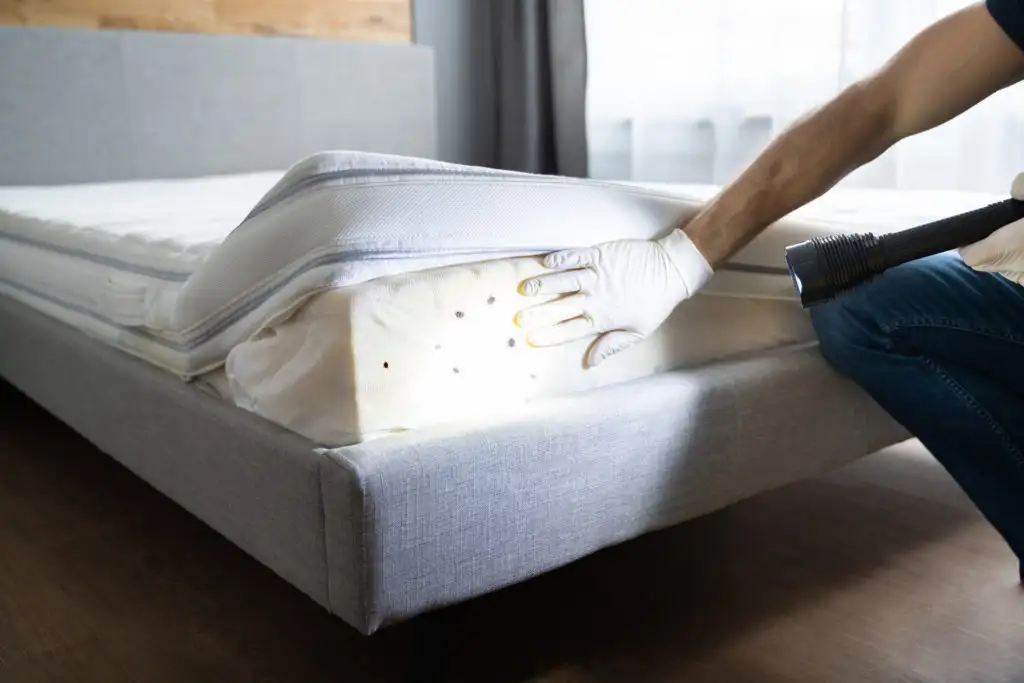
- “If you see signs of bedbugs in your hotel room, contact the front desk immediately so they can call a qualified pest management professional to resolve the problem. Leave the area and properly examine all of your clothing and belongings, and request a new room.
- If you do suspect you’ve encountered bedbugs, leave your suitcase and belongings in the garage or another separate area when you return home. The luggage can be vacuumed and wiped down to reduce the chances of bringing bedbug or their eggs inside. Remove and examine your shoes for bedbugs and eggs before bringing them into the house.
- For an extra level of protection, wash travel clothes immediately when you return. Items that cannot be washed can usually be run through the dryer for 20 to 30 minutes, as the heat from the dryer alone is enough to kill all stages of bedbugs and their eggs. If you are unsure of the severity of your situation, call a pest control professional for an inspection.”
What are the most unusual places you can find bedbugs (e.g. On a plane? Airport lounge?)
“Bedbugs aren’t found just in beds—they can thrive in any location where there is a human host. The most unusual place we discovered bedbugs was inside prosthetics. Some other unexpected places bedbugs have been found are in court rooms, healthcare facilities, and on public transportation, as well as chairs in movie theaters and restaurants. No place is a guaranteed bedbug-free zone; any place humans sit, rest or sleep gives bedbugs the opportunity to feed and multiply.”
How do you get rid of them once you have them?
“There are several steps you can take to eliminate bedbugs:
- Immediately wash infested bedding according to the manufacturer’s instructions – the soap and heat can help eliminate bedbugs at any stage.
- However, if you suspect you might have an infestation, the best thing to do is to call a professional. Pest management professionals have the best methods for treating a bedbug infestation in its entirety. At Terminix, we employ a range of treatments for residential and commercial infestations, including a fast, non-toxic treatment called RapidFreeze®. RapidFreeze uses carbon dioxide (CO2) converted to a dry ice ‘snow’ to freeze insects, including their eggs and nymphs, after contact. RapidFreeze is perfect for homes, hotels, apartments, food processing plants and organic industries. After treatment, if bedbugs are found within 30 days, Terminix will re-treat at no additional cost.”
How long does it take to completely eradicate them?
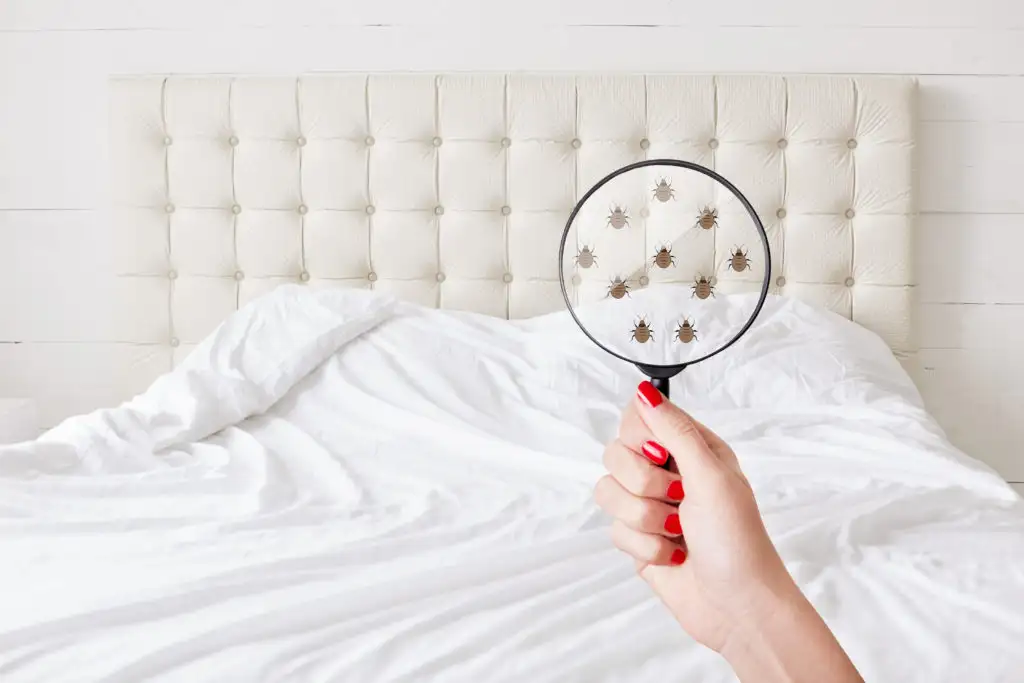
“Eradicating bedbugs is tricky and the length of time to resolve the problem varies on a case-by-case basis. Some infestations can be persistent. Time to control depends on the severity of the problem, where they are hiding, and the type of treatments performed. “
What is the financial impact if you bring them home with you?
“Addressing a bedbug problem immediately is the best way to keep associated costs down. The financial impact of an infestation in a home can vary, and costs can include more than just the expense of inspection and treatment. Some infestations may require structural repair or alteration. Sanitizing, or even replacing some infested items may be required. Depending on many factors, the total cost of curing an infestation can run from hundreds to thousands of dollars.”
Is there anything you can buy to protect yourself from bedbugs?
“Regular self, luggage, and room inspections are the most effective way for someone to protect themselves from bedbugs. Some companies market luggage encasements that help prevent bedbugs from entering your bag. Investing in hard-sided luggage, instead of fabric, can also help prevent bedbugs from creeping in.”
Can they make you sick? Do they carry diseases?
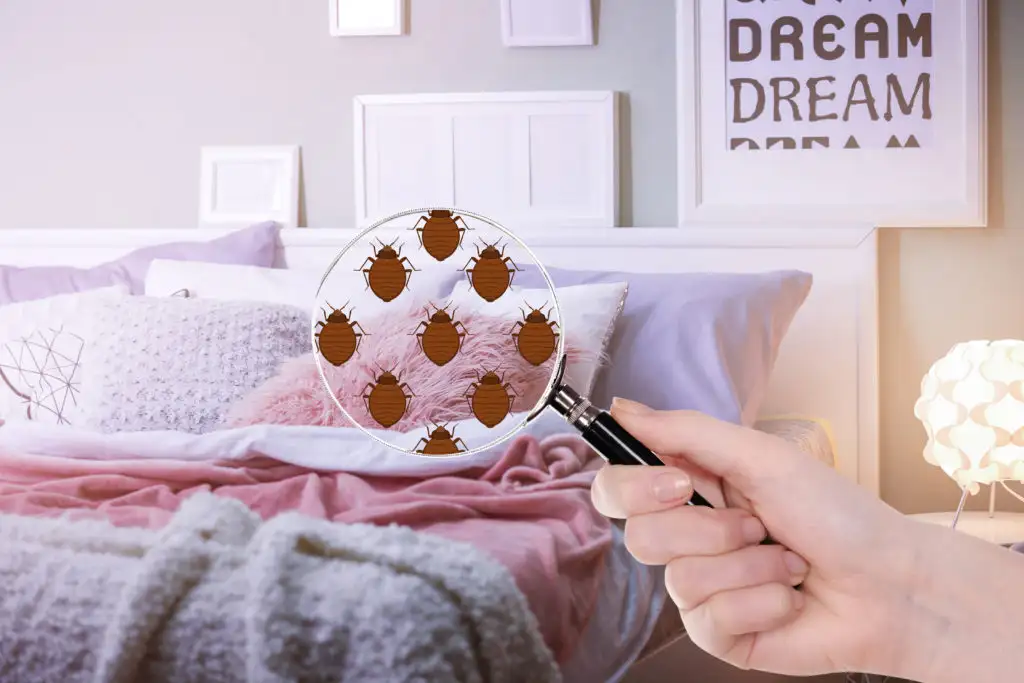
“While bedbugs have not yet been shown to transmit diseases through feeding activities, there may still be health risks associated with exposure to these pests. The most common health issue is the result of itching or excessive scratching of the bites they leave behind, which can cause damage to the skin and introduce infection. In rare cases, individuals may have severe allergic reactions to bedbug bites. “
How long do they live?
“The average lifespan of a bedbug is typically around ten months. A bedbug life cycle includes multiple stages. A female bedbug lays eggs singly or in small groups and they take anywhere from six to seventeen days to hatch. By the time she dies, a female may have laid hundreds of eggs.”
How big can they grow?
“Bedbugs can grow to be about the size of an apple seed—approximately 3/16 to 1/4 inch long.”
How many hotels on average have reported cases?
“There is no way for us to know the percentage of hotels with bedbug cases, though there’s a chance that any hotel you’ve stayed in is at risk of infestation—reported cases are on the rise across the nation. In 2016, Terminix observed a 19.9 percent year-over-year increase in bedbug-related calls.”
Is it true that upscale hotels are just as likely as budget motels to have bedbugs?
“All hotels are equally susceptible to contracting bedbugs, as they are primarily introduced and spread by hotel visitors. However, hotels that conduct more thorough room inspections can often detect problems sooner and engage a pest control professional before the issue spreads from room to room. “
What’s something you don’t expect when you have bedbugs?
“Some people experience psychological side effects after experiencing a bedbug infestation. Bedbugs can cause a great deal of anxiety with people fearing another infestation, or concerned about the social stigma associated with bedbugs. “
What do hotels do to get rid of bedbugs?
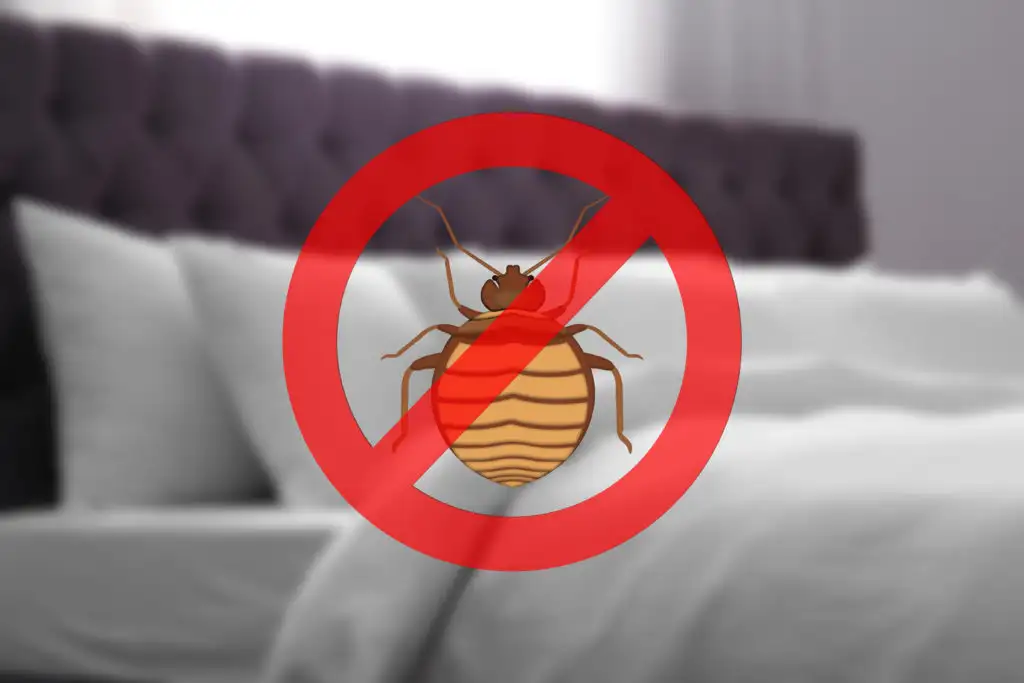
“Most hotels rely on pest management professionals to create customized treatment plans to remove any signs of bedbugs. This can include a variety of methods, from the use of heat and cold to bringing in bedbug-sniffing dogs.”
What other pests beyond bedbugs should people look for in their hotel?
“Ticks and fleas are an often unexpected pest in hotels – most guests are not expecting to encounter these parasites, but many properties allow pets in rooms that can harbor unwanted hitchhikers. Unlike bedbugs, fleas, and ticks can be vectors of pathogens that cause disease.”
Are there ways to check in advance if a hotel has or has recently had a bedbug problem?
“A common method of vetting properties for bedbug activity is to check online bedbug registries or to check online reviews to see if anyone has reported bedbug incidents in their destination. “
Is there any type of lodging that has fewer incidents? B&Bs, etc.?
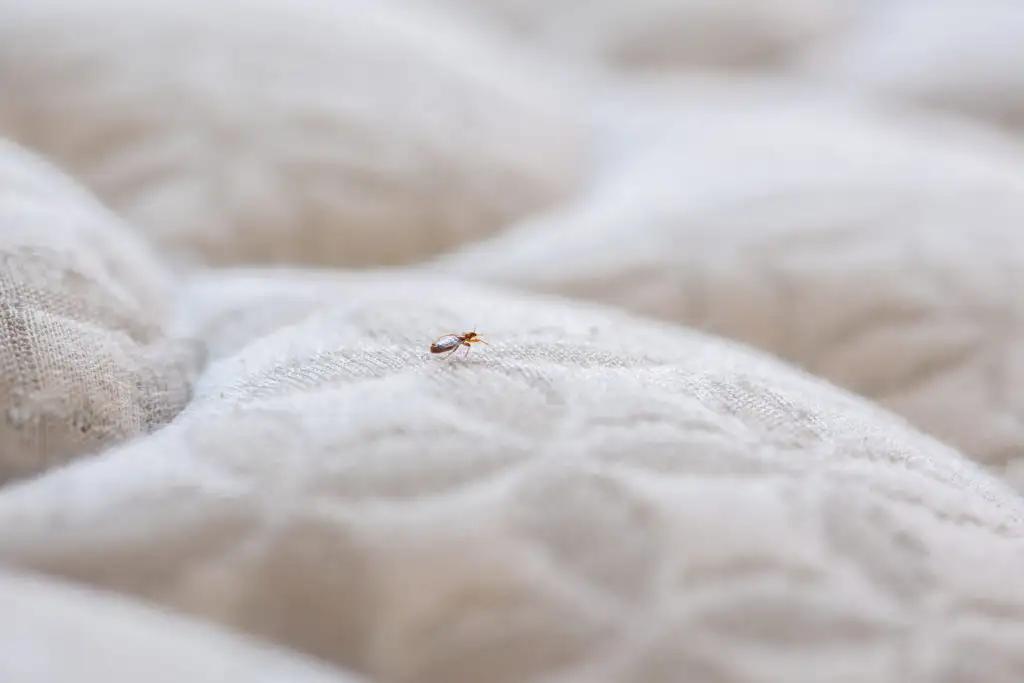
“Unfortunately, the type of lodging has little impact on its susceptibility to bedbugs. Bedbugs aren’t picky, and can thrive in a five-star resort or a truck-stop motel.”
Can you catch lice from an airplane headrest?
“It is possible to catch lice from an airplane headrest. However, most airlines have sanitation programs to keep seats clear of pests. It can be difficult to prove the exact location of origin of lice contact, as many people don’t realize they’ve contracted the pest until four to six weeks after exposure. Anyone suspecting they have contracted lice should consult a medical professional for treatment advice. “
You Might Also Like:
• The One Thing You Need to Add into Your Phone Before Traveling Abroad• 9 Over-the-Counter Medications You Should Pack for Every Trip
• Everything You Need to Know About Visiting a Travel Clinic
• Cancel for Any Reason Insurance, Explained
• What Not to Do When Exiting a Plane During an Emergency
We hand-pick everything we recommend and select items through testing and reviews. Some products are sent to us free of charge with no incentive to offer a favorable review. We offer our unbiased opinions and do not accept compensation to review products. All items are in stock and prices are accurate at the time of publication. If you buy something through our links, we may earn a commission.
Related
Top Fares From
Today's Top Travel Deals
Brought to you by ShermansTravel
12-Night Peru Escorted Tour, Incl. Sacred...
Wingbuddy
 vacation
$2198+
vacation
$2198+
Amsterdam to Copenhagen: Luxe, 18-Night Northern...
Regent Seven Seas Cruises
 cruise
$12399+
cruise
$12399+
Ohio: Daily Car Rentals from Cincinnati
85OFF.com
 Car Rental
$19+
Car Rental
$19+
